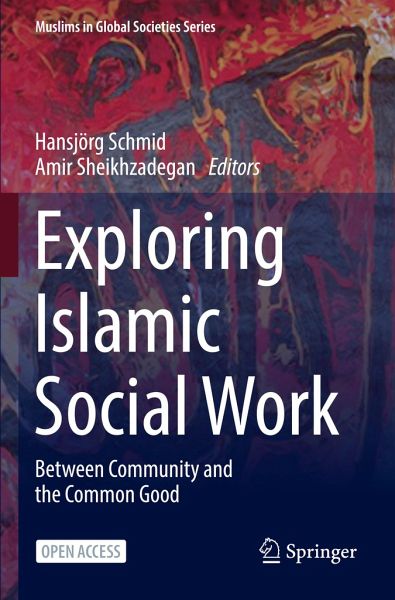
Exploring Islamic Social Work
Between Community and the Common Good
Herausgegeben: Schmid, Hansjörg; Sheikhzadegan, Amir
Versandkostenfrei!
Versandfertig in 6-10 Tagen
42,79 €
inkl. MwSt.

PAYBACK Punkte
0 °P sammeln!
This open access book addresses, for the first time, Islamic social work as an emerging concept at the interface of Islamic thought and social sciences. Applying a multidisciplinary approach it explores, on the one hand, the discourse that provides religious legitimisation to social work activities and, on the other hand, case studies of practical fields of Islamic social work including educational programmes, family counselling, and resettlement of prisoners. Although in many cases, these activities are oriented towards Muslim clients, more often than not they go beyond the boundaries of Musl...
This open access book addresses, for the first time, Islamic social work as an emerging concept at the interface of Islamic thought and social sciences. Applying a multidisciplinary approach it explores, on the one hand, the discourse that provides religious legitimisation to social work activities and, on the other hand, case studies of practical fields of Islamic social work including educational programmes, family counselling, and resettlement of prisoners. Although in many cases, these activities are oriented towards Muslim clients, more often than not they go beyond the boundaries of Muslim communities to benefit society as a whole. Muslim actors are also starting to professionalise their services and to negotiate the ways in which they can become fully recognised service-providers within the welfare state. At a more general level, the volume also shows that in contrast to the widespread processes of secularisation of social work and its separation from religious communities, newtypes of activities are now emerging, which bring back to the public arena both an increased sensitivity to the religious identities of the beneficiaries and the religious motivations of the benefactors. The edited volume will be of interest to researchers in Islamic Studies, Social and Political Sciences, Social Work, and Religious Studies.
This is an open access book.
This is an open access book.














